Remember remember the 5th of November, the day the American election will be won by a woman of colour. The day I sat in my bed writing down my thoughts on the day I would possibly experience my first hurricane. Sitting with the curtain open, the sea bobbing quietly beyond the window, more calm than it has been for much of the month. My finger is wrapped in soggy toilet paper, secured with tape, as I cut it with the bread knife after my morning swim. I don’t think there’ll be a swim tomorrow morning. So much could be changed.
Early morning Tuesday 5th November, the Cayman Islands
In my last post, I wrote of Disturbance 1, and the weather tracking website that I was not going to check. I spent a beautiful weekend under the calm blue Caribbean skies, taking dips in the clear flat sea, which was calmer than it has been for weeks. I sat at the edge of the water as the waves lapped at my feet, enjoying the sound of a roaring floating car, turning donuts like a jet ski. At one point it looked as if it might overturn, but it didn’t. The greatest threat in that moment was my crocs being taken by the creeping waves, and I captured a beautiful picture of the sunset. In the back of my mind I knew something was spinning its way towards us, but for now, this was the calm before the storm, and I intended to be in the moment and enjoy it.
A few days later my efforts to stay in the moment, and to avoid the weather tracking app failed! I was trying to gauge how severe the approaching storm might become, and decide what to do. The schools and government departments were closed as Raphael was predicted to be a category 1 hurricane, hitting Grand Cayman some time in the evening of 5th November.
After staring at the seas all morning, hearing the news reports and reading the National weather updates, the prospect of sea surges and waves 9 -13 feet high, it did not seem sensible to remain in a ground floor apartment almost touching the sea. When I went for my swim, I looked over at the side of the building, trying to calculate the difference in height between the sea level as it was now, and the window of my bedroom. There was surely less space than the sea level was predicted to surge, and the passage of the hurricane between the largest and two smaller Cayman Islands, meant the wind direction would be heading straight towards this part of Grand Cayman island. The stunning view of the sea from my desk suddenly seemed less wonderful. Could I really stand staring into the waves, anticipating them getting higher and closer, waiting for whatever the weather would bring?
The tracker kept changing in its prediction, shifting from category 1 to tropical storm, and back again, and nudging slightly further east towards the sister islands. Still that swirl of the hurricane swooped back towards the coastline on which I lived. Still the National Weather Service issued its predictions.
Is there 9-13 foot to spare? Do I want to be here to find out?
Which information should I believe?
A squally burst of rain at around 10 am made my decision, and I packed up a bag full of overnight things and my valuables, and drove to a friend’s house further away from the sea. I was shown to the room that would be mine for the storm, and from here I couldn’t watch the waves from the window. My desk view was now from the first floor and I looked out onto palm leaves instead of sea.
Window number two- much more tolerable
From this window, the biggest threat I could see was that of coconuts falling onto the car. I felt much safer, and there were many distractions to keep my mind from the storm- first writing a report, then a nice dinner, and the good company of cats and dogs and kind people.
At around 9 pm we got rain. Much less rain than with Helene, which was such a huge hurricane that it affected the island for days. Some areas lots internet and power for a bit, but that was about it for Grand Cayman. We breathed a collective sigh of relief, and the next morning I was on the quiet morning roads, and in the office back at my desk by 10 am. Most of my clients did not come with the disruption of school closures making it difficult to manage the demands of work and childcare. Various posts on Facebook expressed the anger at what now appeared to be overcautious decisions, leaving parents pulled in impossible directions. It reminded me how easily anxiety turns to anger- arousal needs to discharge itself somehow. Mine has shown up as physical fatigue and I’m grateful to have a public holiday on Monday, and chance to rest and recharge.
Working through
Your first time is always memorable, but was this my first hurricane or not?
On Friday a colleague referred to us not getting a hurricane, and being grateful for two days off to rest. That was her story of the events. Officially it was a hurricane, I think. My mind certainly created the idea of one. We had been told to prepare for one, and the dissonance between the warnings, the official response and advice, and the eventual storm was great. I certainly felt anxiety which I have needed to regulate, and processing the events cognitively to make sense of the experience. Yet I’m left with a strange sense of uncertainty.
I’m left without an experience to match the story that developed and needing to connect it together in a coherent narrative. Writing helps me to do this, and writing at the time was helpful in staying present to my experience, supporting me to make the decision that was right for me. I’m writing now, perhaps in an attempt to piece it together, and offer the experience to others.
Finding your own anchor
It is difficult to know how to position yourself in situations of uncertainty. When you are new to a place or situation, there is a tendency to look to others to judge how to respond. I first learned about conformity from the social psychology experiments of my undergraduate studies almost 30 years ago, one classic is that of Asch in 1956. People were shown a series of lines, all of which were the same length, but a stooge planted in the study repeatedly stated that one of the lines was longer. The experimenters wanted to see whether this affected what others said, and found that subjects would give an incorrect answer to conform to the rest of the group. When it was harder to judge the correct answer, the conformity increased. One conclusion from these experiments was that the more uncertain we are, the more we look to others for confirmation.
I looked in all directions for a guide on how seriously to take the threat this week. The difficulty was that everyone was responding in different ways. Their perception of threat differed and seemed to be influenced by different factors-
Environmental risks- People living by the sea more often told me they were moving inland. Others who lived in inland areas that flooded badly with Helene, and they wanted to avoid getting trapped.
Ownership- All the people I knew who left their homes were renters. All the people I knew who owned their property all stayed in it. They took time getting storm ready, and wanted to be present to deal with any issues as they arose. But some also had a back up plan- a place to flee if they needed to, and valuables in a ziplock bag at the ready.
Level of sensitisation- People had a different response to the same information. Some brushed the warnings off and said it was nothing, whilst others took them more seriously. These responses seemed to be influenced by people’s past experiences, sometimes being desensitised, or more sensitive.
Looking to others for a guide of how to respond was a pointless exercise. Everyone was responding differently. I had to figure out what was going to be right for me, and this required some deeper reflection. I had to find my own anchor.
Threat perception
We all experience stressful situations, and have to learn ways to manage stress and function effectively. How much stress we can handle in a moment in time depends upon many things, but Dan Siegel introduced the helpful idea of a window of tolerance, the state of arousal in which a person can best function. In Acceptance and Commitment Therapy (ACT), this is referred to as window of flexibility (Russ Harris, 2022, Trauma-focussed ACT).
The concept of a window helps us to visualise and quantify our capacity for managing difficult situations- some people have windows that are wide, and can cope with a large range of arousal states, and others have windows that are narrow, and the range they can cope with is small. We are all likely able to think of someone who stays calm in almost any situation, and a friend who panics at small changes in their life. These people would be understood as having a large and small window of tolerance, respectively.
Our windows are not fixed in the way real windows are, and the size is influenced by internal and external conditions e.g. past experiences of trauma, being hungry, feeling supported, others responding calmly. Some conditions that impact our window of tolerance are easy to change e.g. we can often expand our window by getting a good night sleep, and others are less easy to change e.g. if we are living in a warzone and constantly in a place of danger.
Whatever the size of our window of tolerance, we all function best when we are within it. In this state we can self-regulate emotionally, feel grounded, present, and flexible. We may feel some stress and pressure, but it is a level we can handle. We are connected to our thinking brain, with our pre-frontal cortex online and able to engage in our higher functions of problem solving. Stress is easier to manage because we can think calmly about how to respond, rather than being in states of panic or shut down.
There are lots of great diagrams to demonstrate the window of tolerance, or window of flexibility, and how we can go outside in two directions, into hyperarousal states, or hypoarousal, the fight, flight and freeze / dissociate states, and what helps us to stay in it -
This year marks 20 years since Ivan, the last category 5 hurricane to hit the island. Just as I arrived on island in September there were many events to mark the anniversary, reflect on the events in 2004, and on how much the island has recovered since then. It was catastrophic, raging over Cayman Islands for 36 hours (see the Cayman Compass article). What must it have been like to experience that severity of hurricane for such a long time? How could anyone have stayed inside their window of tolerance with the power out, wind raging and houses being blown apart all around them?
Those who were on island then (or who have experienced similar hurricanes before or since), likely had a different response to Raphael than those who were not. Whilst for some the two days off were a time of rest, or an anxious and uncertain time because we did not know what to expect, others may have been thrown back into traumatic memories from 20 years ago.
No matter how fancy our tracking systems become, in reality no-one knows for certain what will happen with these weather systems. As it happened, we got less impact because Raphael was a small hurricane and it moved closer to Little Cayman and Cayman Brac. Had it not done so, the warnings and measures would have seemed more proportionate. The army flew people off these smaller islands for their safety. I doubt they feel they over reacted. We can all only make the decision that is right for us at the time and to honour that with self-compassion.
Red sky at night…
As we come to the end of my first hurricane season, I have experienced Francine, Helene and Raphael, and watched Beryl at a distance. I am more attuned to the potential threat of hurricanes and my work means I need to stay alert to the potential ripple effects of trauma amongst people living in the Caribbean.
Beryl hit Cayman whilst the British voted in the General Election in July, and Raphael passed as the USA voters did the same in theirs. The damage caused by the hurricane now seems incomparable to the potential damage at the hand of humans. Going forwards, writing helps me contain my fears, continue to make connections, and find the glimmers of hope and joy to weather whatever the storms bring. There is always something beautiful to anchor to, what does it for you?
The sunset on the 6th November- full of fire and beautiful promise




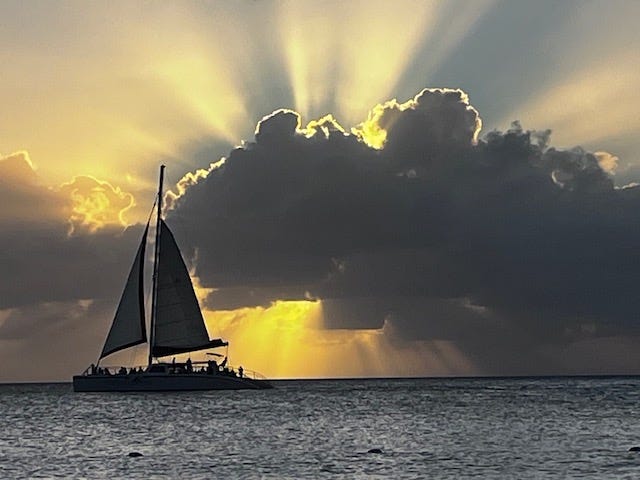
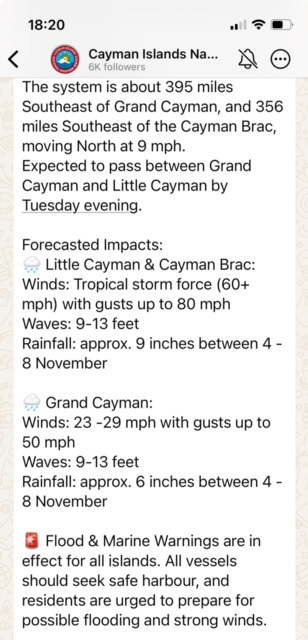
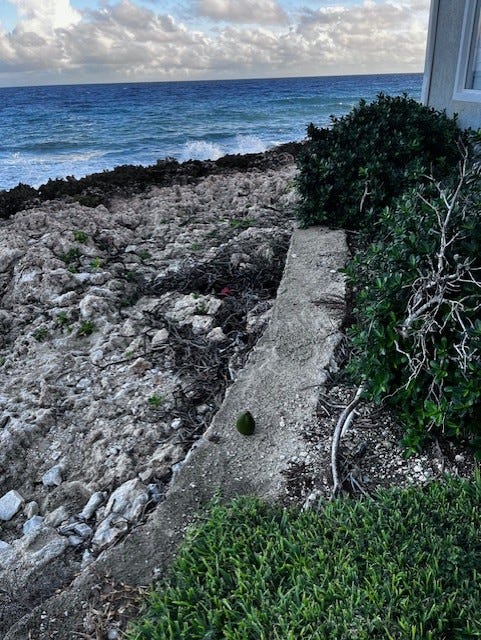
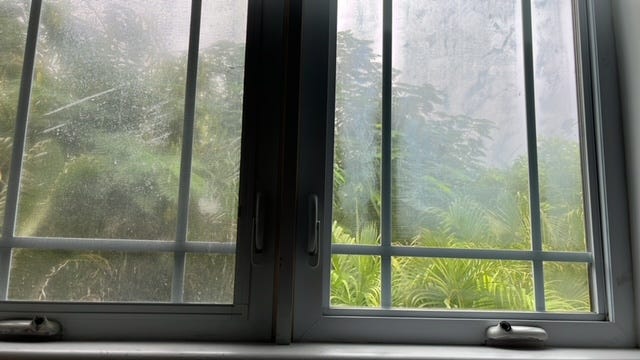
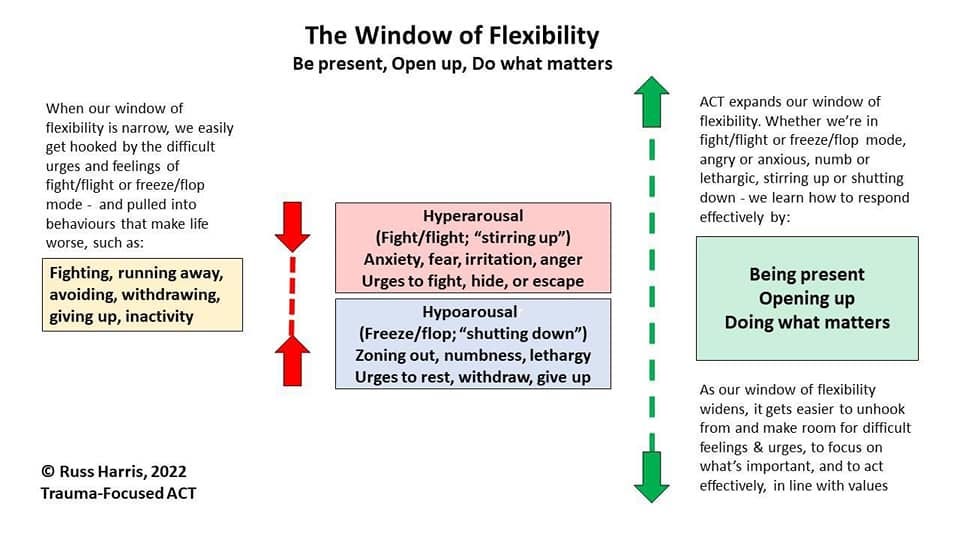


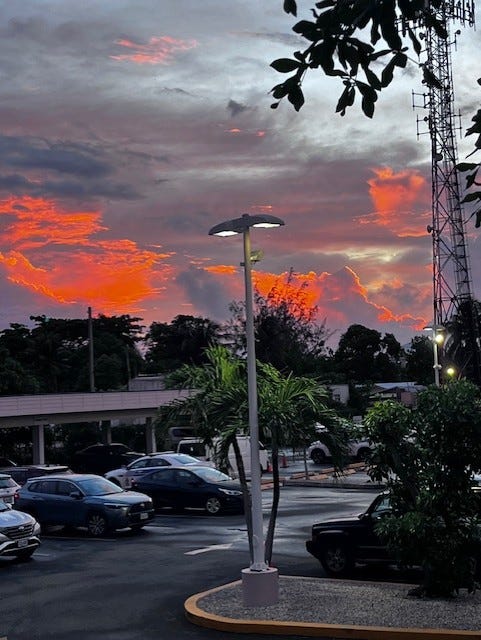
Eek, I'm not sure how well my nervous system would handle hurricane season 😳 We had some crazy cyclones and flooding last year in Auckland and it took me a while before my nervous system didn't get activated by the sound of rain! Glad to hear you survived OK.